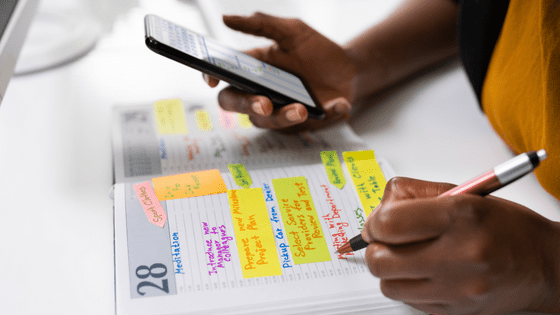Improving Self-Image: Practical Steps to Boost Self-Perception
Developing a positive self-image is vital for personal growth, happiness, and success.
It influences how we perceive ourselves, how we interact with others, and how we navigate through life’s challenges.
In this article, we delve into the concept of self-image, explore its significance, analyze the various factors that influence it, and provide actionable steps to help you build a stronger and more positive self-image.
What Is Self-Image?
Our self-image refers to how we mentally and emotionally perceive ourselves, and how we believe others ‘see’ us too.
It encompasses our thoughts, beliefs, feelings, and evaluations about our own identity, appearance, abilities, and worth.
Self-image is a multifaceted construct that is shaped by our experiences, interactions, and societal influences and can be tricky to understand if we haven’t really ‘noticed’ it before.
The great news is that it can be altered and improved upon.
Why Self-Image Is So Important
When we have a positive self-image, we possess a strong sense of self-worth and confidence that radiates through all aspects of our life.
It empowers us to take on new challenges, pursue big goals, and embrace opportunities with enthusiasm.
On the other hand, a negative self-image can be a hindrance, holding us back from reaching our full potential.
It may breed self-doubt, fear, and a limiting belief that we are not deserving of success or happiness.
By understanding and actively working to improve our self-image, we can break free from these constraints and unlock a world of possibilities.
Factors That Influence Our Self-Image
There are several factors that influence our self-image, which is essentially how we perceive ourselves in terms of our abilities, appearance, and relationships. It’s important to become aware of what has influenced our current self-image, so that we can work on improving it if need be.
Let’s discuss a few of these factors:
Family
Our family plays a significant role in shaping our self-image. As children, we look up to our parents and caregivers, who act as mirrors reflecting an image of ourselves back to us.
Their feedback, reactions and comments to us over the years all help us form an idea of how we are perceived in the world.
Friends & Peers
Our friends and peers have a considerable impact on our self-image.
Positive and supportive friendships can help improve our self-esteem, while toxic relationships may lead to a negative self-image.
Teachers & Other Authority Figures
The teachers and other authority figures in our lives can also shape our self-image.
Encouraging and supportive teachers can help us develop a healthy self-image, while critical or dismissive educators can harm our self-perception.
Social Media & Other External Influences
In today’s interconnected world, we are constantly exposed to ideals of beauty, and curated images through various media channels.
These influences often set unrealistic expectations and create a distorted perception of what is considered attractive, successful, or worthy.
Societal Norms & Stereotypes
Societal norms and stereotypes can influence how we perceive ourselves based on factors such as age, gender, race, or social status.
The pressure to conform to these standards can undermine our self-confidence and lead to a constant striving for external validation.
Personal Experiences
Our self-image is significantly influenced by past experiences, achievements, and failures.
Positive experiences can bolster our self-perception, while negative ones may create self-limiting beliefs.
Recognizing these influences and actively engaging in critical thinking is crucial in developing a healthy self-image that is based on self-acceptance, authenticity, and individuality.
How To Build And Improve Your Self-Image
Our self-image is not a fixed or static concept and it is not solely determined by external factors or past experiences. With conscious effort and personal growth, it is possible to shift and improve our self-perception. After all, they are thoughts and emotions, of which we, as humans, have the capability to control.
Changing self-image requires self-reflection, self-awareness, and a willingness to challenge and reframe negative beliefs and perceptions about ourselves.
By actively engaging in practices that promote self-acceptance, self-compassion, and personal development, it is possible to cultivate a more positive and healthy self-image.
Some effective strategies for changing self-image include:
- Positive Affirmations & Self Talk: Use positive self-talk and affirmations to challenge negative thoughts and beliefs about yourself. Replace self-criticism with self-encouragement and remind yourself of your strengths and capabilities.
- Self-Reflection: Engage in introspection and explore the origins of negative self-image. Identify any past experiences, societal influences, or self-imposed limitations that may have contributed to your self-perception. Really question them, and see if they actually hold true or not (it’s highly likely they don’t). Challenge and reframe those beliefs to align with a more positive self-image.
- Personal Growth and Development: Focus on setting small goals, acquiring new skills, and engaging in activities that align with your values and interests. Accomplishments and progress will significantly impact your self-confidence and self-image.
- Surround Yourself with Positive Influences: Seek out supportive relationships, mentors, and role models who uplift and inspire you. Be aware of the social media and news you are consuming and reflect on how the music, tv shows and movies that you consume make you feel. Surrounding yourself with positive influences can help counteract negative self-perception and reinforce a healthier self-image.
- Practice Self-Compassion: Be kind and compassionate towards yourself. Treat yourself with the same care and understanding you would offer to your friend. Embrace self-acceptance and forgive yourself for past mistakes or any perceived flaws.
- Seek Professional Help: If negative self-image persists despite your efforts, consider seeking the assistance of a mental health professional, such as a therapist or counselor. They can provide guidance, support, and therapeutic techniques to help you explore and transform your self-image.
Remember that changing self-image is a gradual process that takes time and effort.
Be patient and persistent with yourself, and celebrate small victories along the way. With dedication and self-compassion, you can reshape and improve your self-image to align with a more positive and authentic perception of yourself.
There are several resources and additional support options available to help you improve your self-image and enhance your well-being.
We have highlighted some valuable tools to guide you on your journey, including books, and insights from positive psychology.
One of the most effective ways to learn about and improve self-image is by reading books on the subject.
Many authors have shared their insights and strategies for fostering a positive self-image and self-esteem. Some noteworthy books to consider adding to your reading list include:
- “Psycho-Cybernetics: How To Use The Power of Self-Image” by Maxwell Maltz (my fav!)
- “The Six Pillars of Self-Esteem” by Nathaniel Branden
- “You Can Heal Your Life” by Louise Hay
- “The Gifts of Imperfection” by Brené Brown
Lastly, don’t forget the valuable insights and strategies from the field of positive psychology. Techniques such as:
- challenging negative self-talk,
- practicing mindfulness,
- expressing gratitude, and
- taking self-appreciation breaks can all contribute to a healthier, more positive self-image.
Now that you have an overview of these resources and additional support, we encourage you to explore them further and incorporate the lessons and strategies that resonate with you.
Remember, building your self-image is a process, and seeking support along the way can make all the difference!





